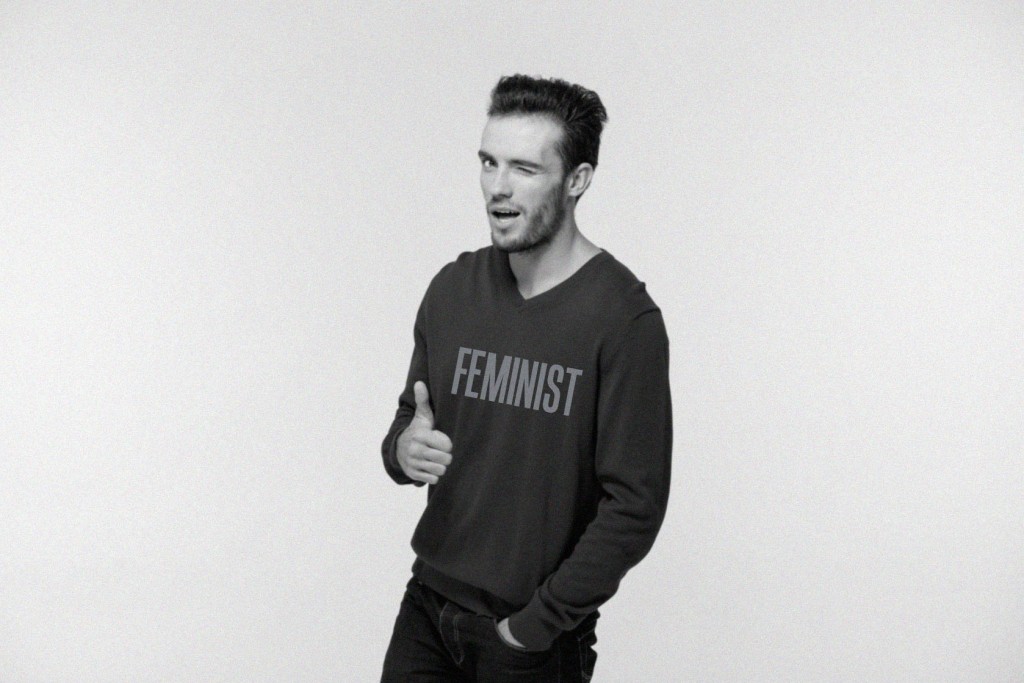So said bell hooks and so say I. But — and I hate to say it — there are people out there who twist and abuse the movement for their own benefit.
I’m not talking about so-called “feminazis,” or even about feminists who reject intersectionality. (WTF, though.) I’m calling out the nice guys who claim to be feminist. “Nice guys” as in, “I’m so nice, why do women keep friendzoning me instead of f**king me?”
If you aren’t already aware, let me tell you: male feminism isn’t without its problems. For example, just try to think of some prominent feminist men. I’m sure Aziz Ansari, Joseph Gordon-Levitt, Matt McGorry, Daniel Radcliffe, Mark Ruffalo, John Legend, Alan Rickman, and Tom Hardy all come to mind. But 20 years ago, you’d have been hard-pressed to think of three male feminists, much less eight. Why the change?
Well, for one thing, feminism has become much more visible in the age of social media. It is easier than ever before to share and distribute content and ideas. So it isn’t at all surprising that celebrities — and other members of the newly-converted — are coming out of the woodwork to talk about their beliefs.
However, there is something else influencing the number of male feminists you’re able to name: men gain attention for claiming feminism, and much more so than women. Let me be clear: every feminist is a reason to celebrate, but, in many ways, the attention overpaid to male feminists upholds the status quo.
It isn’t that these male celebrities aren’t genuine in their feminism. None of them have attempted to displace their female counterparts, to write the next great feminist text, or to fix all of women’s problems like some sort of white knight. These men know how to stay in their lane, how to be allies without dominating the conversation. They aren’t looking for special attention on the grounds of claiming feminism, but the media gives it to them anyway.
This is not the case for the nice guys. Many of this breed — which Wendy Gittleson calls “faux-minists” — claim to be feminists with only a cursory understanding of what the movement is about. They know all about slut-shaming, but continue to shame women of size. They blame victims of domestic violence for not leaving their partners, and talk suspiciously about women who “cry rape.”
These guys are #NotAllMen, in the flesh, and many of them are probably not malicious. It is possible that years of benefiting from male privilege leads them to believe that their stances are valid and important, even on issues that do not concern them. If they believe themselves to be genuine feminists, they do not realize the extent to which they are hurting the feminist movement.
The faux-minists are troubling, but there is a more disturbing species of fake male feminist. These guys claim to be feminists in order to have lots of sex with sex-positive women. Of course, misrepresenting yourself in order to get into someone’s pants is neither sex-positive, nor feminist; it’s actually the antithesis of the two and tantamount to rape, since, according to a Yale Law Journal article by Yale law professor Jed Rubenfield, “a consent procured through deception is no consent at all.”
This kind of behavior isn’t new — especially not to feminists who have encountered these nice guys in the dating scene wilds — but it’s complicating things for almost everyone. Genuinely feminist men may be deterred from announcing their beliefs, simply because they don’t want to be mistaken for liars and rapists. Many women, like Kate Iselin, “won’t date another ‘male feminist'” after dealing with predatory faux-minists.
Some will say that they don’t care if feminism is ruined for men, because it was never about men in the first place. That’s true, to an extent. First-wave feminists were not fighting for men’s rights to vote, after all. But somewhere after the second wave hit, most feminists decided that patriarchal prescriptions for masculinity and femininity hurt people of all/no genders. Again, to quote bell hooks, feminism is for everybody.
It’s fantastic that there are eight prominent men in Hollywood espousing feminism. And, sure, it would be better if all of them read Wollstonecraft through to Butler and took hammers to the patriarchy. But we cannot celebrate men’s embrace of feminism as if it’s the movement’s biggest victory. Likewise, the fact that faux-minist men are ruining feminism for men is not the worst setback for feminists. It is, however, something that should be addressed, simply because none of us want the men in our lives to give up on feminism because they think male feminists are [insert insult here].
This is all to say that we should combat fake feminism for the same reason as any other problematic variety of the movement: because it deters others from joining. We don’t need male allies, but — because feminism strives to be an inclusive movement — we shouldn’t ignore the issues that prevent those who are interested from participating in feminist practice.

















